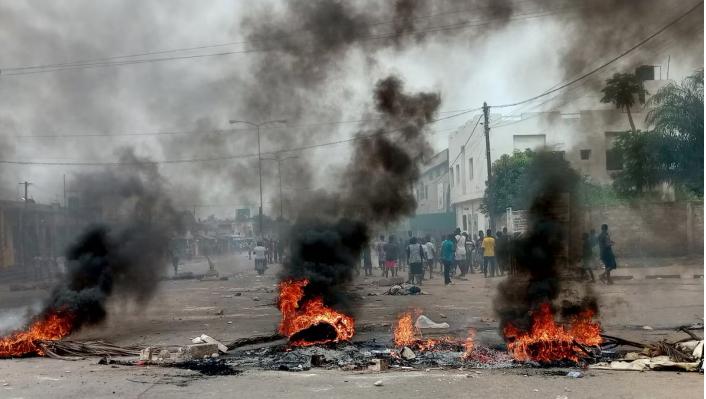A sweeping constitutional overhaul in Togo has triggered a wave of unrest, with youth-led protests intensifying after President Faure Gnassingbé transitioned into a powerful new prime ministerial role that grants him total executive authority, effectively allowing him to bypass presidential term limits and extend his family’s six-decade rule.
The controversial move, pushed through in early 2024 without public input or referendum, was swiftly approved by a loyal parliament dominated by the ruling Union pour la République (Unir) party.
It replaced Togo’s presidential system with a parliamentary one in name, but instead concentrated power in the hands of the new prime minister now held by Gnassingbé himself, while reducing the presidency to a ceremonial office filled by 86-year-old Jean-Lucien Savi de Tové.
Since then, tensions have flared across the capital Lomé, particularly after the May arrest of rapper and regime critic Aamron, whose satirical video mocking Gnassingbé’s June 6 birthday gained viral attention.
His secret detention, followed by confinement in a mental hospital and the release of a coerced apology video, later disowned by Aamron sparked mass protests on 5 and 6 June. Hundreds were arrested, and at least five people have died during violent confrontations with state forces.
Although Gnassingbé stepped down as president in May after 19 years, critics say the change is cosmetic. With a manipulated constituency map and a weakened opposition, Unir retains a tight grip on parliament.
“Faure Gnassingbé... will no longer need to stand for re-election in his own name,” said political analyst Paul Melly, noting the move is designed to prolong his power while shielding him from public backlash.
Civil service minister Gilbert Bawara defended the process, saying “all the major political actors and parties” participated in the 2024 elections and accused opposition figures in exile of inciting violence.
“The government cannot be held responsible for the weakness of the opposition,” he said during a recent interview on BBC Focus on Africa.
Despite those claims, turnout for the July 17 local elections was visibly low. Opposition leader Jean-Pierre Fabre said no other voters were present when he cast his ballot.
The elections were held just weeks after the new constitution came into force, an apparent breach of Ecowas protocols that require a six-month gap between a major constitutional change and fresh polls.
Yet regional leaders have remained silent, likely wary of provoking further fragmentation after the exits of Burkina Faso, Mali and Niger.
Human rights groups report that security forces have used brutal tactics against demonstrators, with pro-government militias roaming the streets armed, detaining scores including uninvolved bystanders.
Two bodies were found in a lagoon north of Lomé, although it remains unclear whether the victims drowned fleeing arrest or were killed.
Notably, it is not traditional political parties but cultural figures like Aamron and jailed poet Affectio who have galvanised young people disillusioned with formal politics.
“There is a sense that the streets, not the ballot box, are the last resort for change,” said a leading human rights activist.
The unrest has grown into a broader protest movement under the banner of M66, named after Gnassingbé’s birthday, with the hashtag #FaureMustGo spreading rapidly online.
Young people from across Lomé continue to clash with authorities, burning barricades and demanding an end to what many see as a republican monarchy disguised as reform.
Although Togo joined the Commonwealth in 2022 and claims to be adopting a more democratic model, international attention remains fixed elsewhere, particularly on Ukraine and Gaza.
As a result, the transformation of Togo’s political structure—engineered quietly and quickly—has gone largely unnoticed on the global stage.
Still, with rising anger on the streets and growing defiance among cultural influencers, the attempt to solidify the Gnassingbé family’s hold on power may prove more fragile than it appears.

